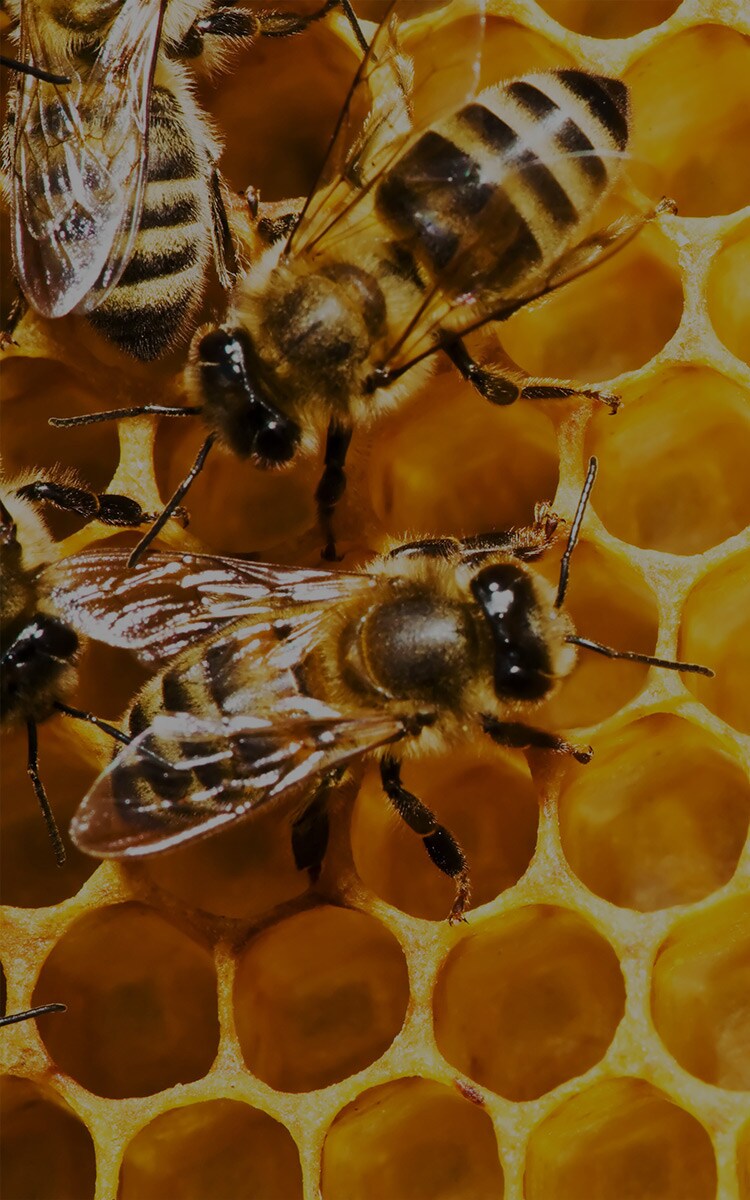With Beko RecycledTub™ we reduce plastic waste by producing washing machine tubs from recycled plastic to improve the health of the bee population.
Nature is first and foremost the home of the animals. For this reason, every relationship we establish with nature affects the life of animals in their natural cycle. Unfortunately, we see that an animal species that can’t find food and shelter in its natural environment becomes extinct every day.
Einstein said, “If bees disappear from the face of the earth, man will only have 4 years to live, and if there are no bees, there will be no fertilization, no plants, no animals, no man.
Bees not only ensure the reproduction of 130,000 different plant species but also meet the very important needs of human beings. Although developing technology and industrialization make the life of human beings easier, they cause the extinction or extinction of many living things and living species. One of these creatures is bees.
Why are bees so important?
The simple answer is that bees pollinate food products. Pollination occurs when insects, bees and other pollinators move from one plant to another and fertilize the plant. Bees have tiny hairs all over their bodies that attract pollen. When pollen from a flower sticks to a bee, it travels with the bee to its next destination. When a bee lands on the next plant to flower, pollen is dispersed, resulting in cross-pollination. This process is what then yields fruits, vegetables, and seeds.
Bees are one of the world’s most important pollinators for food products. In fact, one in three bites we consume relies on pollination. We must emphasize how important bees aren’t only for humans, but for the environment in general.
What does a beeless world mean?
Bee populations are slowly decreasing across the world. This is “What happens if the bees go extinct?” brings the question to mind. The extinction of bees means losing not only fruits and vegetables but also many natural cycles of daily life. They are truly a key species, a vital part of many ecosystems.
About 90% of the flowering plant species on the planet need pollinators to aid in reproduction. This not only provides a food system for wildlife, but also creates shelter for animals.
The decrease in the bee population in the world in recent years is attributed to the chemicals used in agriculture, the human factor, and the deterioration of the ecological system. Research shows that apple, cherry, and blueberry yields are reduced due to insufficient pollination. Experts point out that the extinction of bee species will lead to the disappearance of plants, crops and potentially the entire ecosystem through a domino effect.
How does environmental pollution threaten the lives of bees?
Bees are an important part of the global food system, but air pollution is making it harder for them to do their jobs. Whether it's the exhaust fumes from cars or the smoke from power stations, air pollution is an invisible threat.
Airborne pollutants affect all kinds of life. For example, in heavily polluted areas of Serbia, researchers found that pollutants remained in the bodies of European honeybees. Car exhaust fumes are known to interrupt the scent cues that attract and direct bees to flowers and interfere with their ability to remember scents. This can be a big problem for honeybees because they use floral scents to help locate, identify, and recognize the flowers they feed on.
These effects may not completely kill the bees. But if people continue to work repeatedly under severe stress or feeling unwell, the researchers found that air pollution makes the bees sluggish in their daily activities and can shorten their lives.
Leafcutter bees, for example, which are similar in size to European honeybees but solitary and found all around the world, have been shown to use their huge mandibles to cut half-moon shaped pieces out of plastic, just as they do from leaves and petals.
Scientists in Chile, Argentina, and Canada, and the United States have observed leafcutter bees collecting such bits from bags, packaging, and other plastic materials and lining their nests with them.
As Beko we know that a healthy planet means a healthy future, and every step we take as a company towards preserving the environment is a step toward a better tomorrow. And for this reason, we reduce plastic waste by producing washing machine tubs from recycled plastic to improve the health of the planet with our products. We chose to use recycled plastic bottles for the tubs of our Beko RecycledTub™ series of washing machines and washer dryers. In 2019 and 2020 alone, a total of 39 million recycled plastic bottles new life in our RecycledTub washing machines and washer dryers*.
What is the importance of World Bee Day?
To raise awareness of the importance of the essential role bees and other pollinators play in keeping people and the planet healthy is so important.
Why is it important to save bees?
Flowering plants rely on pollinators for reproduction. But the value of bees goes beyond just supplying countless fruits and vegetables. Bees are also responsible for nuts, coffee and even spices. Here are the top 5 reasons why bees are important:
They help to produce 1/3 of our food supply.
They help to provide ½ of the world’s fibres, oils and other raw materials.
They help to create many medicines.
They provide food for wildlife.
They help to prevent soil erosion.
*Figures, actions, and targets by parent company Arçelik.





